NEWS
HumanCityDesignAward NEWS LETTER - Denpaku Hotel
2022.09.16
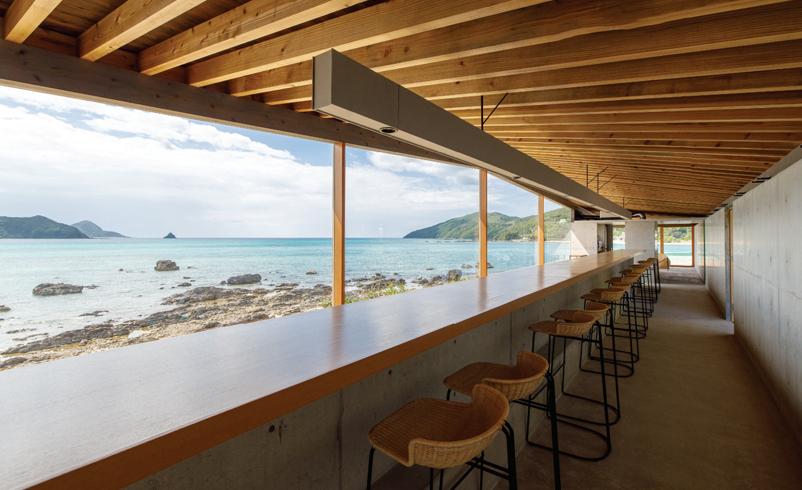
Group : Shima Hito Takara
City : Amami, Japan
Representative Designer : Yasuhiro Yamashita
Honorable Mention
Denpaku Hotel
"From forgotten values in the local area into an attractive tourist destination!"
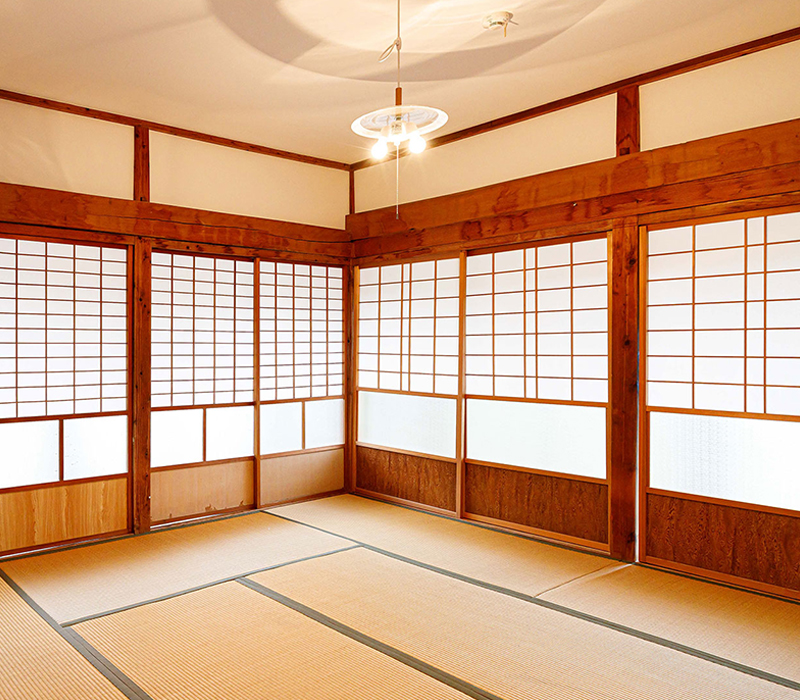
Amami oshima is an island located between Kyushu and Okinawa, the two southernmost islands of Japan. It is a small and beautiful island designated as a World Heritage Site.
“Den-paku” literally means “to stay in a traditional structure.”
The term refers to a group of renovated accommodation facilities that used to be old traditional houses in and around Kasari, a village in northern Amami City.
It all started in 2016 when two abandoned houses on the beach were renovated into traditional Amami-style hotel facilities. This later developed into a revitalization project of the Kasari region,
and today 44 guestrooms of various types are available in 30 houses and buildings, including traditional houses.
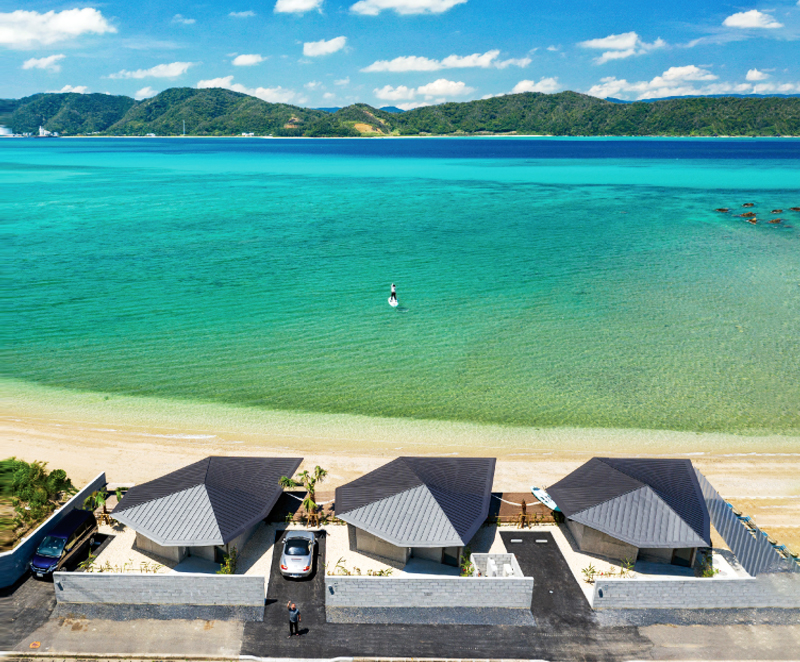
Den-paku facilities are categorized into four types. The most standard type is the villa that used to be traditional Amami houses.
These can be found all over the island. Meanwhile, hotel-type guestrooms are offered on the second floor of the Ma-gun Plaza and at a nearby building.
The Ma-gun Plaza is located at the center of the city.
Once a popular supermarket for local residents, it has been the central facility of the Den-paku Hotel since its renovation and opening in 2018.
It now functions as a community welfare and tourist center.
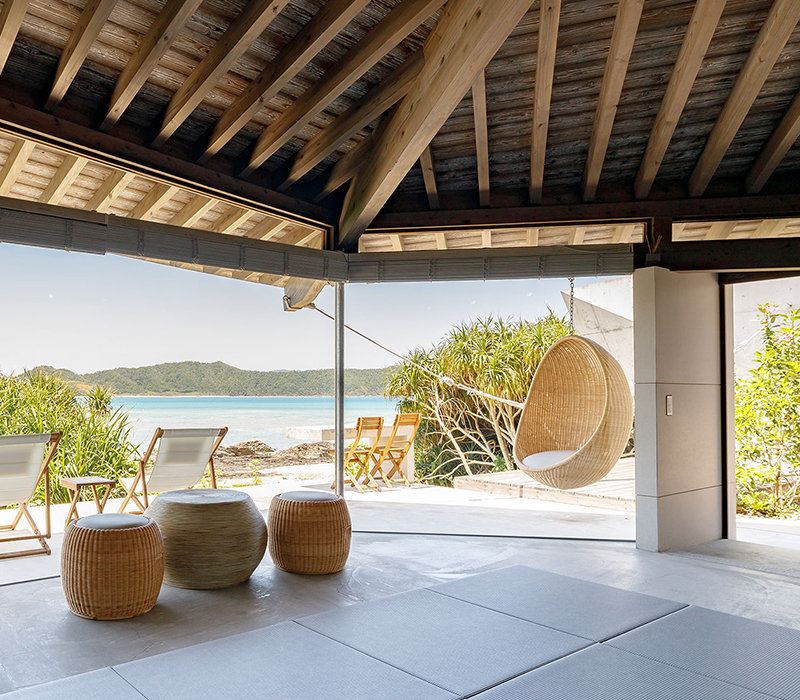
There are restaurants and shops on the first floor, where tourists and local residents mingle.
Lunch services for the elderly and disabled are offered at the restaurants. The Den-paku Beachfront MIJORA is a luxury resort featuring villa-style guestrooms and restaurants.
It brings in the bulk of the income for Amami City and its residents. The restaurants use locally grown vegetables and seafood to support local farmers and fishers.
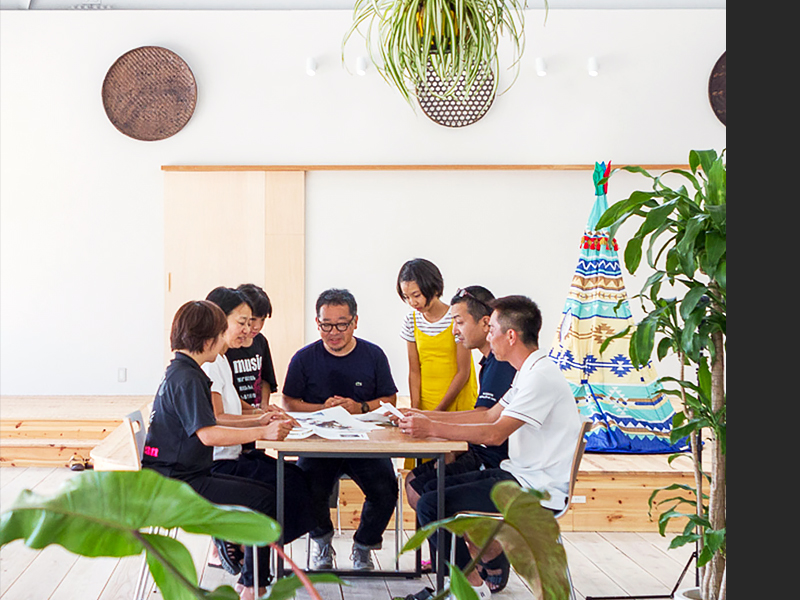
Den-paku is not just a hotel made out of empty houses. It also offers various activity programs that are run by local residents.
By encouraging interaction between residents and tourists, these programs bring in income and help pass on the village’s traditional culture to the next generation.
Local residents earn money by working as instructors for everyday activity programs and interacting with tourists as they get a first-hand experience of the local traditional culture.
The architect’s job is to explore hidden values within the village’s historic buildings and traditional culture, give them new roles and refine them.
Together, they are developing the local region and turning it into an attractive tourist destination, thereby passing on the local culture to the next generation and the world.